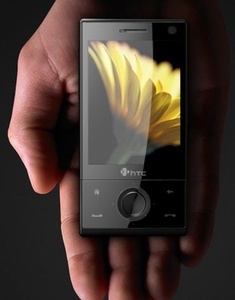 Clearwire CEO Ben Wolff calls the Sprint Nextel, Clearwire, Google, Intel, Comcast, Time Warner Cable, and Bright House Networks WiMax joint venture announced today “the most complex deal anyone has ever done.”
Clearwire CEO Ben Wolff calls the Sprint Nextel, Clearwire, Google, Intel, Comcast, Time Warner Cable, and Bright House Networks WiMax joint venture announced today “the most complex deal anyone has ever done.”
No kidding. Get out your scorecards kids, you’re gonna need ‘em.
Sprint Nextel, the No. 3 wireless carrier in the United States, and Clearwire, a Kirkland, Wash.-based startup company founded by cellular pioneer Craig McCaw, are pooling their wireless broadband spectrum and engineering resources to create a $14.55 billion communications company that will retain the Clearwire name.
Clearwire’s purpose is to continue developing a nationwide mobile network based on WiMax, one of two next-generation wireless broadband technologies that promise Speed Racer-like performance. Clearwire’s other goal is to build this “4G” network as fast as it can ahead of the U.S.’s two largest wireless operators, AT&T and Verizon, which have chosen (at least for now) to build LTE (Long Term Evolution) networks.
Along for the ride are outside investors, including Google, Intel, Comcast, Time Warner Cable, and Bright House Networks. They will kick in a total of $3.2 billion to give them a 22 percent stake in the new company.
Sprint holds the majority of stock at 51 percent, with Clearwire holding 27 percent.
All in all, the joint venture and formation of Clearwire is pretty darn impressive and a sign that the battle for control in the U.S. mobile industry is far from over. In fact, it’s still heating up and getting more interesting by the day.
“The agreement enables us to get to market faster and reach a broader audience than we could have if we went it alone,” Dan Hesse, Sprint Nextel’s chief executive officer, told analysts on a conference call.
Continue reading »

 Owners of HP’s line of Internet-connected MediaSmart High Definition TVs, and the yet-to-be-released MediaSmart Connect set-top box, will soon be able to enjoy content from the Google-owned video sharing site “full screen” on their HDTVs, as well as log-in to their YouTube account via remote to share videos and playlists with other users.
Owners of HP’s line of Internet-connected MediaSmart High Definition TVs, and the yet-to-be-released MediaSmart Connect set-top box, will soon be able to enjoy content from the Google-owned video sharing site “full screen” on their HDTVs, as well as log-in to their YouTube account via remote to share videos and playlists with other users.  The news last week that Microsoft plans to turn off its verification servers for its now-defunct MSN Music store, is a stark reminder of the potential pitfalls customers face whenever they purchase content crippled by Digital Rights Management (DRM) software. Any digital store that sells or loans you content in a copy-protected format makes you a hostage to that store or format’s commercial success. The Microsoft example, however, is just one of many. Here are five cases where companies have sold their customers down the DRM-filled river.
The news last week that Microsoft plans to turn off its verification servers for its now-defunct MSN Music store, is a stark reminder of the potential pitfalls customers face whenever they purchase content crippled by Digital Rights Management (DRM) software. Any digital store that sells or loans you content in a copy-protected format makes you a hostage to that store or format’s commercial success. The Microsoft example, however, is just one of many. Here are five cases where companies have sold their customers down the DRM-filled river. Something is going on here. Why does the mobile industry want us, the consumer, to develop its phones for them?
Something is going on here. Why does the mobile industry want us, the consumer, to develop its phones for them?

 When Apple first unveiled the latest iteration of its Mac OSX operating system, codenamed ‘Leopard’, the marketing slogan read: “
When Apple first unveiled the latest iteration of its Mac OSX operating system, codenamed ‘Leopard’, the marketing slogan read: “